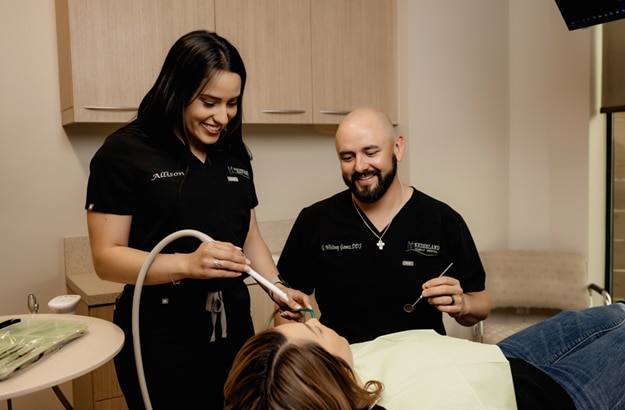
Enhanced Dental Care for Your Teeth
Learn about the process of laser dentistry and how to care for your teeth afterwards.
The use of lasers in modern dentistry has transformed the way treatments are performed, offering precise and effective solutions for a variety of dental health and aesthetic issues. Unlike traditional surgeries that involve scalpels and sutures, laser surgery is stitch-free and promotes faster healing.
In laser dentistry, light energy is utilized to address specific oral health issues, providing a gentle and comfortable experience for patients. While some patients may experience mild soreness for a day or two after treatment, over-the-counter medication is typically sufficient to manage any discomfort. Interestingly, many patients in Nederland have reported not needing any medication following laser dentistry procedures.
Common applications of laser dental procedures include treating a range of concerns such as:
- Lip and tongue-tie procedures
- Correcting gummy smiles
- Addressing periodontal disease
- Treating canker sores
Is laser dentistry a safe procedure?
- Accelerated healing
- Enhanced comfort
- Reduced bleeding
- Improved precision
- Tissue regeneration
- Effective infection control
- Expedited healing of canker and cold sores
Frenectomy services are offered in Orange, TX.
- Snoring
- Infants nodding off during feeds
- Milk dribbling from the corners of the infant's mouth
- Gas or colic
- Weight gain challenges
Improve Your Smile with Gum Sculpting
The best solution for treating periodontal disease
If you are experiencing periodontal disease (gum disease), it is important to see your dentist in Orange, TX for treatment. This condition can cause inflammation and infections in the tissues that support your teeth, potentially leading to tooth loss. Gum disease can also impact your overall health, affecting your lungs and heart. Research has shown connections between gum disease and Alzheimer's disease and rheumatoid arthritis.
Some common symptoms of gum disease include:
- Bad breath
- Loose teeth
- Red or swollen gums
- Bleeding gums
- Periodic or recurring toothaches
- Gum pocketing
- Elongated tooth appearance


